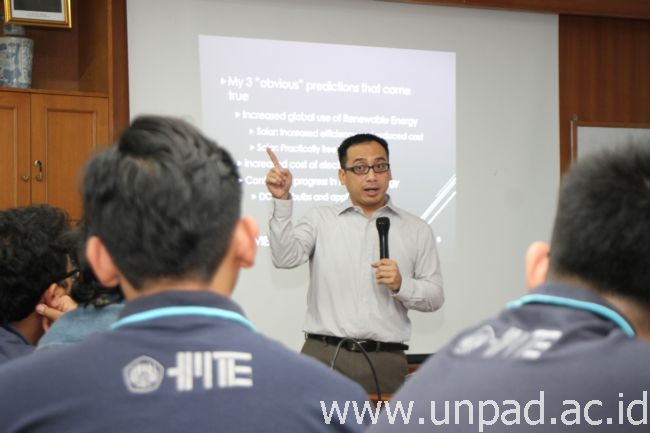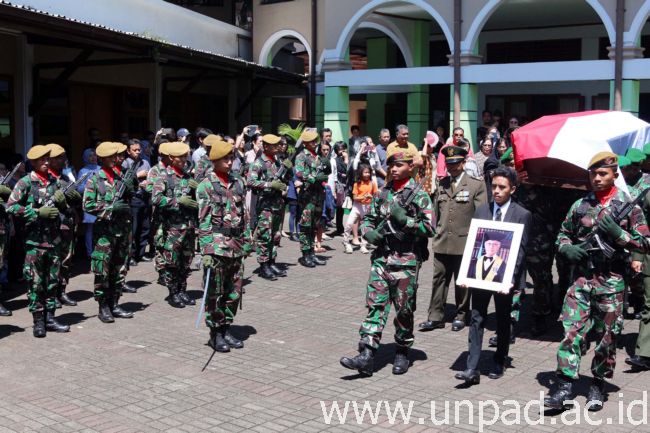[Unpad.ac.id, 22/12/2015] Electricity is a vital component for development of human civilization. Nevertheless, there are still many people in various parts of the world, including Indonesia, which have yet to feel the presence of electricity for improving quality of their life. AC (alternating current) electric current, which is commonly used in house electrical system has not been not effectively used to meet needs in areas that has not been reached by electricity. These statements were expressed by Director of Electric Power Institute Cal Poly State University, Prof. Dr. Taufik.

“AC Power indded has large scale, but the risk is too great. If it fails, we will lose a lot, “said Prof. Taufik during his public lecture in front of students and department of Electrical Engineering FMIPA, Universitas Padjadjaran, Monday (22/12) in Building C Basic Science Service Center (PPBS), Universitas Padjadjaran Jatinangor campus.
Prof. Taufik explained that in order to reach the availability of electricity in remote areas, the government usually uses top down system, in which power is supplied on a large scale for the entire community to use. However, he considered this system implied imposition.
“There is a paradigm shift, from surviving without electricity in the beginning, and now ‘forced’ to use electricity on a large scale. It could lead to culture shock, “he explained.
One of the effective methods, according to Prof. Taufik, was to use (DC/direct current) electrical system based on green power sources. By utilizing potential energy source from earth, DC house can provide electricity that is not dependent on the AC power outlet.
This method has been developed by scientists from Indonesia in Calpoly State University in the United States. Prof. Taufik has developed DC electrical system in the house (DC House). This system, he believed, provided more efficiency in generating electricity in rural areas because it used direct source of potential natural energy.
There are several reasons for Prof. Taufik to focus on DC House development in his research. He revealed that there was an increase use of renewable energy to replace fossil energy sources for electricity needs in the United States within the year 1980 – 1990. In addition, he said that electricity price would continue to rise.
To the participants of the public lecture, Prof. Taufik revealed the data of the potential use of renewable electrical energy. According to him, the power consumption of water energy in the US until 2010 has reached 3427 Terawatt. Meanwhile the use of electricity from solar energy in 2001 – 2011 has reached 55.7 Terawatt (electrical equivalent of 5.6 million standard house). While electricity from wind energy from 1997-2014 has amounted to 369.553 megawatts (equivalent of 74 million standard house).
With these potentials, he was confident that “DC house” can become dominant form of the electrical system in the future. Aside from its cheap price, “DC house” was considered more environmentally friendly.
“It’s the right method to be applied in the countryside. Why don’t we create small scale first before impose on large scale when the community is not ready to use it? “Prof. Taufik said.
Unpad has developed DC House with a capacity of 48 VDC/600 watt. Prof. Taufik hoped Unpad to become the front line of the DC House development in Indonesia.
“I am not stating that the current electrical program is incorrect, but we need alternatives,” he concluded.*
Reported by Arief Maulana / eh

